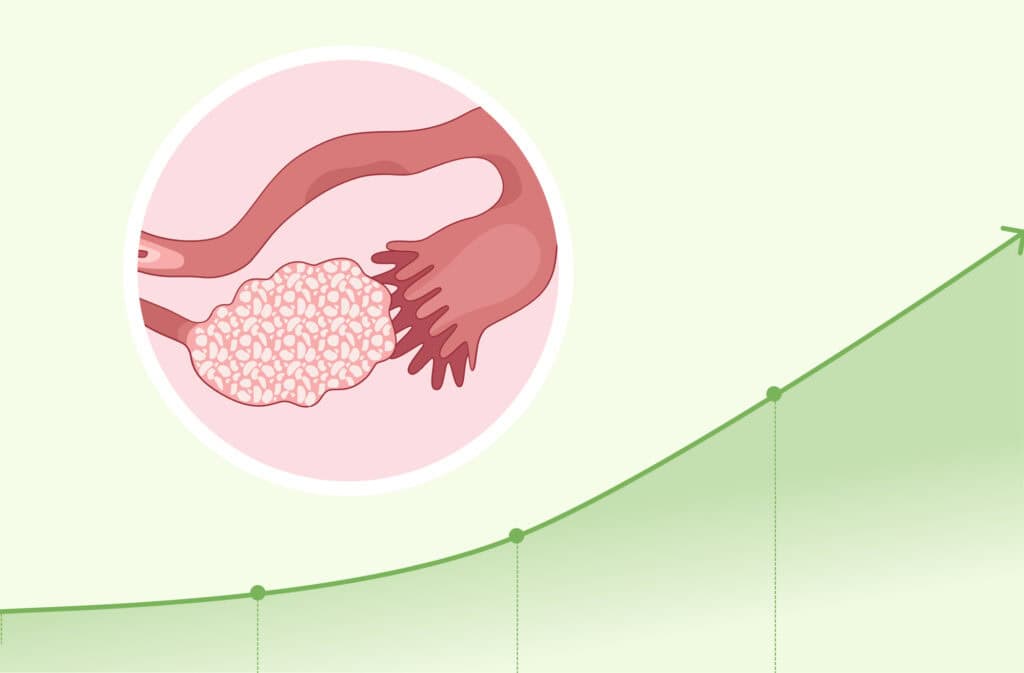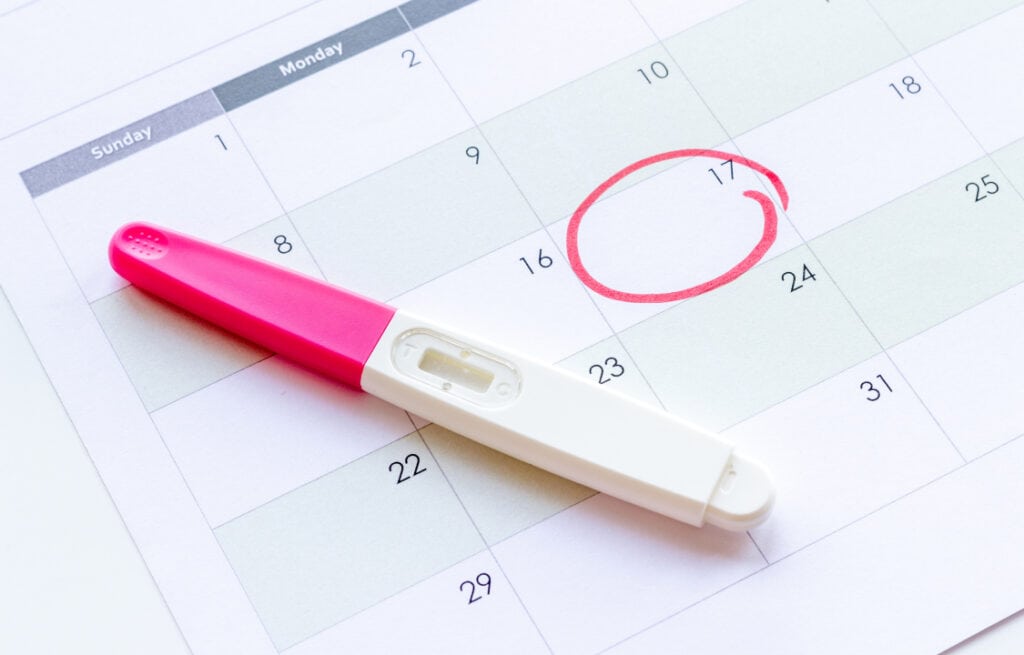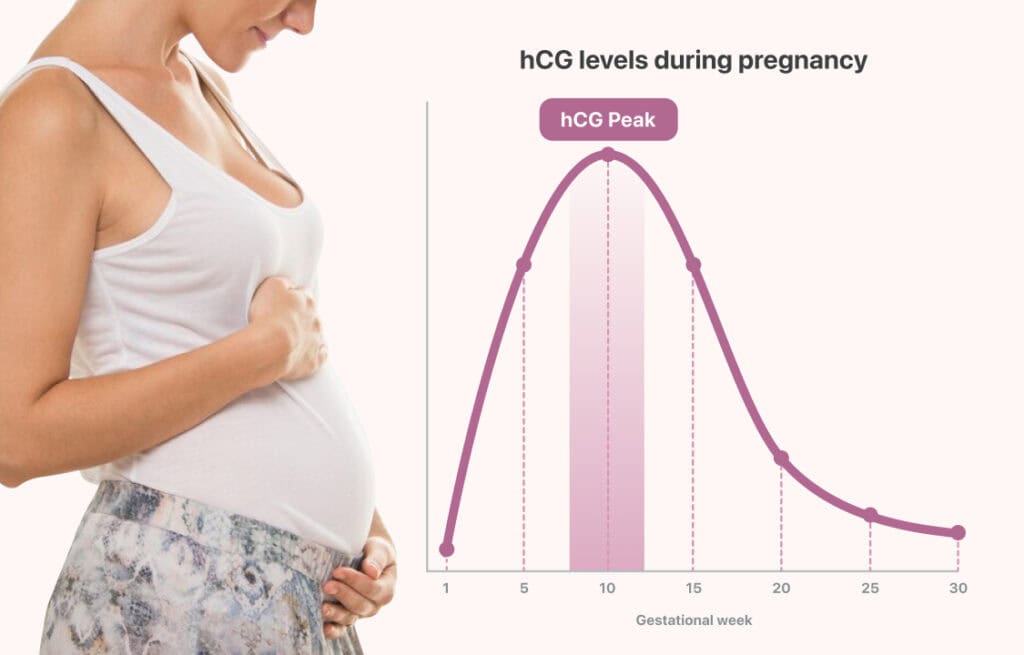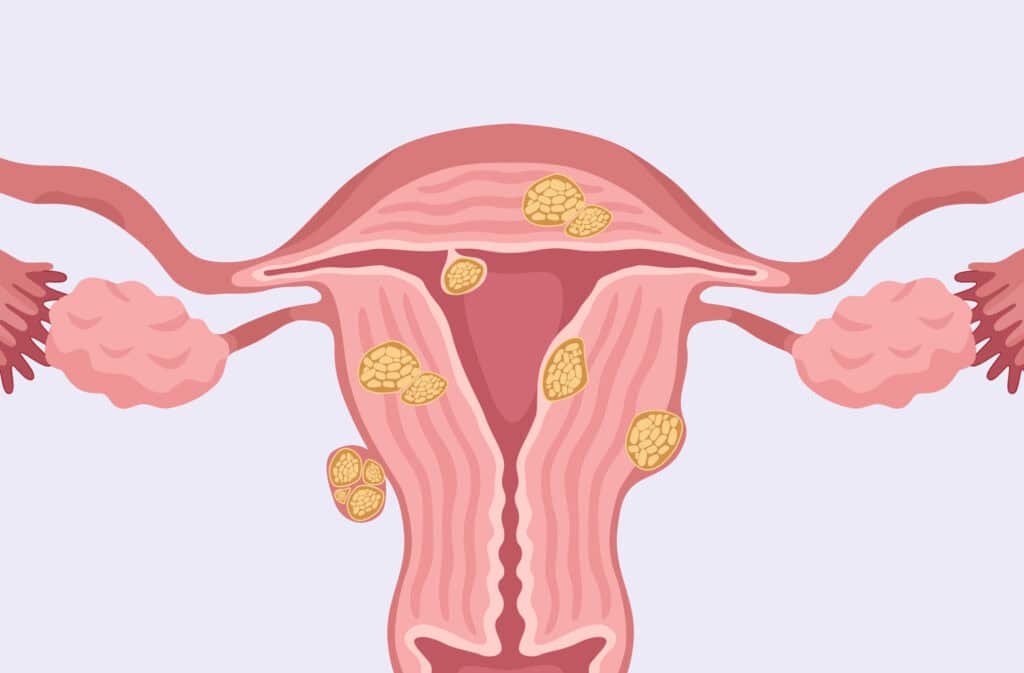Femia > Health Library > Getting Pregnant > Planning pregnancy > How to increase AMH levels naturally: Tips for improving fertility
How to increase AMH levels naturally: Tips for improving fertility

- Updated Feb 18, 2025
- Published
CRAFTED BY HUMAN
Crafted by human At Femia, we provide accurate and up-to-date information at every stage of your journey, from trying to conceive, pregnancy and postnatal support. All content is created by a real person based on in-depth research and own professional experience. Femia ensures that you will receive expert advice, strict accuracy and a personalized approach from our authors/medical experts. Learn more about our editorial policy.
FACT CHECKED
Fact checked At Femia Health, we maintain the highest standards of editorial excellence in delivering content focused on helping you conceive, guiding you through pregnancy, and supporting you postpartum. Explore our content review principles to learn how we ensure the accuracy and quality of our health and lifestyle tips for every stage of your journey.
An anti-Müllerian hormone, or AMH, is a hormone produced by the ovaries in females. It regulates ovarian follicle growth and controls other hormones that affect ovarian function. Hence, it is directly linked to your ovarian reserve – the total number of eggs in your ovaries. AMH levels peak until the mid-20s and then gradually decrease as ovarian reserves diminish with age. AMH levels are also influenced by lifestyle and medical factors. Low AMH can help diagnose reproductive health and signal challenges with conceiving, but it’s possible to increase its levels and enhance your fertility with the help of:
- Dietary adjustments
- Lifestyle changes
- Supplementation
- Medical approaches
Low circulating AMH levels may affect your ovarian reserve and cause challenges with conception. Nevertheless, it’s just one piece of a large fertility puzzle that doesn’t necessarily mean an inability to conceive.
Since the levels of AMH can be affected by natural aging, as well as lifestyle factors and medical conditions, it’s possible to support your fertility despite low AMH. Of course, effective fertility therapy requires personalized advice from your healthcare provider. However, before you receive it, in this article, we’ll tell you how to increase AMH levels naturally through practical tips to help you get on the right track.
Femia helps millions of women understand and balance their hormones
What is AMH and why does it matter?
An anti-Müllerian hormone, or AMH, is a hormone produced by the testicles in males and the ovaries in females. In females, this hormone starts producing in small amounts before birth and becomes more prominent after birth, in particular, during childhood and reproductive years, helping your reproductive organs to form and develop.
AMH is responsible for regulating ovarian follicle growth and controls other hormones that make ovaries grow eggs during the cycle. Hence, AMH levels are directly connected with your ovarian function. This hormone peaks in early adulthood when you’re most fertile. With age, low AMH starts reflecting a decreasing ovarian reserve, until it drops to zero in menopause when there are no eggs left. Yet, though naturally declining AMH is connected with your ovarian reserve, it doesn’t directly determine the odds of getting pregnant with age.
👉Find out more: How long does it take to get pregnant after sex: Understanding the timeline
How is the AMH level tested?
AMH levels are defined with the help of a blood test that detects the amount of hormone present in a blood sample. Given its massive impact on sexual and reproductive health, AMH blood tests are used to help diagnose different reproductive health conditions, including polycystic ovarian syndrome and endometriosis, menopause, and infertility.
What causes low AMH?
There are three primary reasons linked to low AMH levels:
- Age: Age is the primary factor linked to low AMH. The hormone peaks in the mid-20s, after which it naturally decreases along with the female ovarian reserve until zeroing at menopause.
- Lifestyle factors: Various lifestyle factors have been linked to decreased ovary function and thus, lower AMH levels. Namely, the hormone is affected by nutrition, stress, and smoking.
- Medical conditions: Certain health conditions that affect a female ovarian function, hormonal signaling, and the number of ovarian follicles can also contribute to low AMH levels. These can include conditions like PCOS, endometriosis, or ovarian damage.
Can you increase AMH levels?
Since this hormone diminishes naturally with age, reversing AMH levels permanently is impossible. Nevertheless, it’s possible to optimize your overall health to encourage your body to produce more AMH to support ovarian function and fertility.
Some strategies that may help improve AMH levels and fertility include:
- Dietary adjustments
- Lifestyle changes
- Supplementation
- Medical approaches
Dietary strategies to support AMH levels
If you’re wondering how to increase AMH levels in females naturally, your diet is the first thing you should reconsider. Nutrition is known to be closely connected to hormone regulation. Supplying your body with the right nutrients can greatly help you balance different hormones, including AMH.
A study on women who followed a fertility-focused nutrition plan for 100 days showed a significant 65% increase in their AMH levels, which is a high result for such a short period of time. According to the study, the foods to increase AMH levels include:
- Whole foods, such as fresh fruits, vegetables, and whole grains.
- Protein foods, such as lean meats and fish.
- Healthy fats like nuts, avocados, and seeds.
- Antioxidant-rich foods, such as leafy greens and berries.
Foods to avoid
While enhancing your diet with the aforementioned foods can help balance AMH, it’s also important to note that certain foods, on the contrary, can lead to low anti-Mullerian hormone levels.
Namely, processed foods, including fast food and products high in saturated fats, were significantly associated with lower AMH concentrations. Additionally, excess sugar has been linked to disrupted basal hormone levels and ovarian function, which could also lead to low AMH levels. So these are some foods to avoid if you want to improve your fertility.
👉Find out more: Fertility diet: What to eat to boost your chances of getting pregnant
Lifestyle changes to improve AMH
Another practical tip on how to increase anti-Mullerian hormones is to adjust your lifestyle and make sure you integrate healthier habits. Here are some of the most effective lifestyle tips for improving fertility:
- Maintain a healthy body mass index. Studies reveal significantly lower AMH levels in overweight people.
- Implement stress management techniques like mindfulness, meditation, and yoga. Prolonged stress can cause oxidative damage to ovarian follicle cells, leading to low AMH and reduced fertility.
- Avoid smoking, excessive alcohol, and exposure to environmental toxins. These toxic compounds are commonly associated with accelerated reproductive aging and thus can affect your ovarian reserve and AMH levels.
- Integrate moderate exercise into your daily life. Regular low-impact physical activity doesn’t only help maintain a healthy body mass index but can also boost your blood circulation and help balance hormones, hence, supporting your ovarian reserves and reproductive health.
Femia helps millions of women understand and balance their hormones
Supplements for low AMH levels
When used right, supplements and vitamins help fill nutritional gaps and promote overall health. If you’re dealing with low anti Mullerian hormone levels, taking the following supplements can help improve the balance and support fertility:
CoQ10 (Coenzyme Q10)
This supplement has been shown to counteract both mitochondrial ovarian aging and physiologically programmed ovarian aging. It prevents the oxidative damage caused to your ovarian cells and may help protect your ovarian reserve from diminishing while supporting egg quality.
DHEA supplements
In a nutshell, DHEA supplements are used as an anti-aging therapy. These supplements are known to improve physical performance, regulate mood, and facilitate hormonal balance.
Furthermore, DHEA supplements were found to boost AMH levels and support ovarian reserves in the long run. However, it’s crucial to consult a healthcare provider before taking them.
Vitamin D and omega-3 fatty acids
These two are among the baseline supplements needed to support female reproductive health. Both vitamin D and omega-3 fatty acids have been shown to improve pregnancy and fertilization rates, which is why they are often used when planning pregnancy.
Besides, they are also often found among the most crucial prenatal vitamins needed to support fetal and maternal health when pregnancy has already occurred.
Medical approaches to manage low AMH
Finally, if you are wondering how to improve AMH levels, you should know about the following medical opportunities:
- First of all, if low AMH levels have been already associated with reduced fertility, treatments like in vitro fertilization (IVF) can help overcome this. Women with very low AMH may have a smaller ovarian reserve and poorer egg quality, which may impact the number of eggs retrieved and the duration of therapy. Nevertheless, studies indicate fairly high chances of achieving pregnancy with IVF treatment.
- Another medical opportunity for addressing low AMH and related fertility challenges is offered by ovarian rejuvenation techniques. For example, platelet-rich plasma (PRP) therapy has shown a gradual monthly increase in AMH levels and improved follicular activity.
- Lastly, ovulation induction can also help improve fertility with low AMH levels. Namely, medications like clomiphene citrate (clomid), letrozole, or gonadotropins may be prescribed to you by a healthcare provider. Although such therapies may not significantly increase your AMH levels, they are known to stimulate ovarian function and thus enhance fertility potential.
Managing expectations with low AMH
Although low AMH levels might indicate a diminished ovarian reserve, which can complicate conception, it’s important to understand that AMH is just one piece of the fertility puzzle. With that being said, it doesn’t mean you can’t conceive naturally.
Adjusting your lifestyle and taking proactive steps to prepare for pregnancy, for example by using a getting pregnant app to plan conception and getting preconception care, can greatly help you enhance the likelihood of success. Following tips for enhancing your AMH levels naturally or seeking medical support can also help.
Numerous success stories confirm this. Trying to get pregnant with a low ovarian reserve or advanced maternal age isn’t rare. An inspiring example is 41-year-old Shannon who successfully gave birth despite testing low for AMH and receiving a forecast of less than 4% chance of getting pregnant with IVF. This is just one story in a million that proves that AMH testing is just a starting point in pregnancy planning and not a dead end. On the contrary, detecting low AMH levels is a good way to understand your fertility and develop a personalized plan that will help you step into motherhood.
Questions from the Femia community
Can birth control use affect AMH levels?
No, taking birth control doesn’t directly impact the circulating level of AMH. Nevertheless, birth control may temporarily suppress ovarian function, which may hinder the production of AMH and make its levels appear lower in tests.
What’s the difference between AMH and FSH levels in fertility testing?
AMH is a hormone that regulates ovarian follicle growth and thus is used to measure your ovarian reserve. FSH stands for follicle-stimulating hormone and is responsible for measuring how well your ovaries respond to brain signals aimed to stimulate egg production. Both hormones help assess fertility.
Does having low AMH mean I can’t get pregnant naturally?
No, AMH levels alone can't predict your fertility but just indicate your quantity of eggs. Hence, natural conception is still possible with low AMH levels, though it may take longer. Typically, pregnancy success rates will correlate with your cycle regularity and age rather than AMH levels.
How to increase AMH levels in Ayurveda?
In Ayurveda, treatment protocols to address low AMH levels include the use of herbs like Shatavari and Ashwagandha, dietary adjustments with a focus on nourishment and balance, and stress management techniques like yoga. Panchakarma therapy might also be an option but only under expert supervision.
The bottom line
Linked to your ovarian reserve, AMH levels can pose certain conception challenges. However, as you now know, it’s not the only factor affecting your fertility and therefore not an absolute barrier to pregnancy.
So, how to increase AMH? If you are tested for low AMH levels, there is a range of natural and medical approaches that can help support your fertility, including:
- Dietary adjustments, such as limiting processed foods and focusing on whole foods, protein foods, healthy fats, and antioxidant-rich foods.
- Changing your lifestyle to maintain a healthy body mass index and steering clear of exposure to harmful things like smoke and alcohol.
- Supplementing with vitamins and elements that support fertility and improve egg health.
- Use of medical approaches like IVF and ovulation induction to increase pregnancy chances.
These strategies have been shown to either improve AMH levels or generally support your reproductive health. So if you’re planning for pregnancy, don’t hesitate to consult with a fertility specialist to find an approach that will work best for you.
References
- “anti-Mullerian hormone; definition.” National Cancer Institute. https://www.cancer.gov/publications/dictionaries/cancer-terms/def/anti-mullerian-hormone.
- Oladipupo I, Ali T, Hein DW, Pagidas K, Bohler H, Doll MA, Mann ML, Gentry A, Chiang JL, Pierson RC, Torres S, Reece E, Taylor KC. “Association between cigarette smoking and ovarian reserve among women seeking fertility care.” PLoS One, 13, Dec. 2022. https://pmc.ncbi.nlm.nih.gov/articles/PMC9746951/.
- Rianna John. “Fuel Your Fertility: understanding AMH and how nutrition can improve your fertility.” Enhanced Fertility Programme, 24, Jul. 2023. https://efp.clinic/fuel-your-fertility-understanding-amh-and-how-nutrition-can-improve-your-fertility/.
- KaboodMehri R, Sorouri ZZ, Sharami SH, Bagheri SE, Yazdipaz S, Doaei S. “The association between the levels of anti-Müllerian hormone (AMH) and dietary intake in Iranian women.” Arch Gynecol Obstet, Sep. 2021. https://pubmed.ncbi.nlm.nih.gov/34021805/#:~:text=Conclusion%3A%20Fast%20foods%20and%20saturated,reservation%20of%20ovaries%20in%20women.
- Volk KM, Pogrebna VV, Roberts JA, Zachry JE, Blythe SN, Toporikova N. “High-Fat, High-Sugar Diet Disrupts the Preovulatory Hormone Surge and Induces Cystic Ovaries in Cycling Female Rats.” J Endocr Soc, 2, Nov. 2017. https://pmc.ncbi.nlm.nih.gov/articles/PMC5740526/.
- Li, YL., Yan, EQ., Zhao, GN. et al. “Effect of body mass index on ovarian reserve and ART outcomes in infertile women: a large retrospective study.” J Ovarian Res 17, 195, 2, Oct. 2024. https://ovarianresearch.biomedcentral.com/articles/10.1186/s13048-024-01521-1#citeas.
- Özcan P, Fıçıcıoğlu C, Kizilkale O, Yesiladali M, Tok OE, Ozkan F, Esrefoglu M. “Can Coenzyme Q10 supplementation protect the ovarian reserve against oxidative damage?” J Assist Reprod Genet, Sep. 2016. https://pubmed.ncbi.nlm.nih.gov/27255570/.
- Fouany MR, Sharara FI. “Is there a role for DHEA supplementation in women with diminished ovarian reserve?” J Assist Reprod Genet, Sep. 2013. https://pmc.ncbi.nlm.nih.gov/articles/PMC3800538/.
- Revelli A, Biasoni V, Gennarelli G, Canosa S, Dalmasso P, Benedetto C. “IVF results in patients with very low serum AMH are significantly affected by chronological age.” J Assist Reprod Genet, May, 2016. https://pmc.ncbi.nlm.nih.gov/articles/PMC4870438/.
- Éliás, M., Kónya, M., Kekk, Z. et al. “Platelet-rich plasma (PRP) treatment of the ovaries significantly improves fertility parameters and reproductive outcomes in diminished ovarian reserve patients: a systematic review and meta-analysis.” J Ovarian Res 17, 104, 17, May, 2024. https://ovarianresearch.biomedcentral.com/articles/10.1186/s13048-024-01423-2#citeas.
- “AMH Testing Leads to Fertility Success. After AMH testing, Shannon overcame a low score and advanced maternal age.” Texas Fertility Center. https://txfertility.com/fertilitystories/amh-testing/.

Learn if you can get pregnant without a period. Discover how ovulation works and the factors that can affect fertility with irregular menstrual cycles.

Explore this in-depth guide about the role of hCG in pregnancy, hCG levels by week, symptoms of rising hCG levels, and when to consult a doctor for an abnormality.

Learn how fibroids can affect pregnancy, potential symptoms and risks, and when to seek medical advice. Get tips for managing fibroids for a healthy, successful pregnancy.

